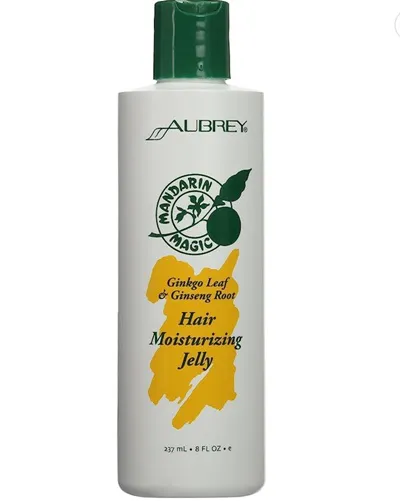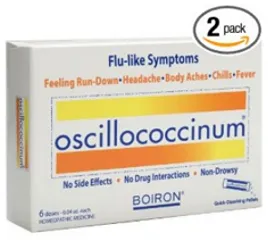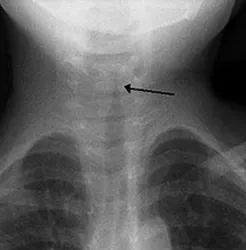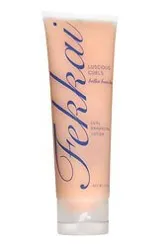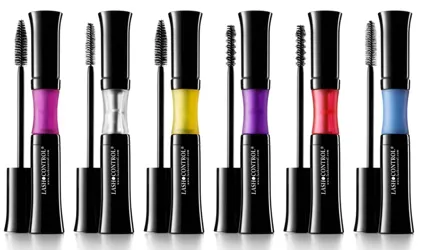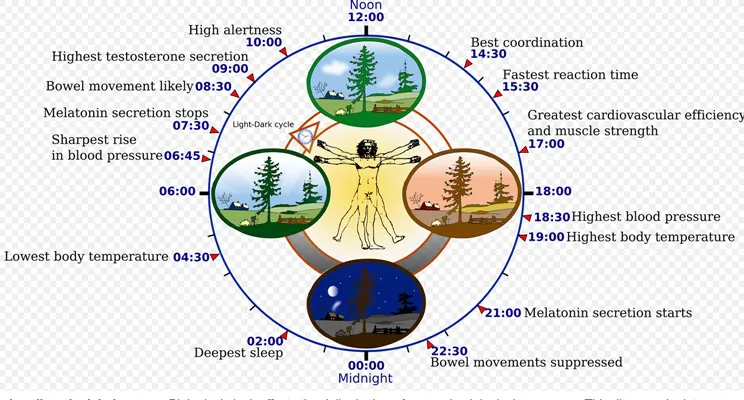
Benefits Of Ginseng For Your Hair
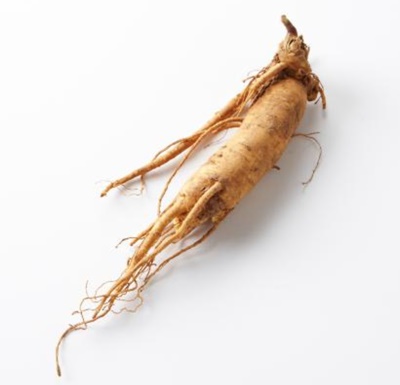 A root of cultivated Korean ginseng (P. ginseng) Insam (ginseng)
A root of cultivated Korean ginseng (P. ginseng) Insam (ginseng)Traditional Asian medicine doctors have used Korean red ginseng to improve overall health for the past 2,000 years. It's for a good reason.
The super-herb (aka red panax ginseng) is rich in phytonutrients. It contains unique compounds that enhance immune system function.
It also has benefits for hair.
Ginseng If Derived From Chinese Word Renshen
The English word 'ginseng' is derived from the Chinese word rénshēn. It translates to 'plant root.'The Chinese translation refers to the forked root of the ginseng plant. It resembles a person's legs.
Ginseng is an energy stimulant. It's also a herbal tea staple. Ginseng is a powerful ingredient for all remedies.
The fleshy root has witnessed a recent rise in popularity,
Cutting-edge medical research has been based on using it as a supplement. Or as a topical application. Applying it topically may help stall or even turn back the clock for human tresses.
Why Korean Red Ginseng?
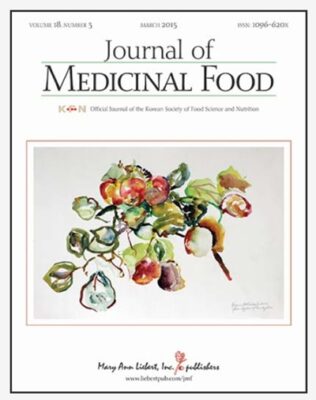 Benefits Of Ginseng For Your Hair
Benefits Of Ginseng For Your HairCompared to other kinds of ginseng, Korean red ginseng or Panax ginseng (Renshen, Chinese ginseng) contains more ginsenosides.
The active compound in the root that disarms cell-damaging free radicals recharges the immune system and reduces the ill effects of pollutants and the demands of modern-day life.
A member of the Araliaceae family, the genus name Panax was derived from the Greek word meaning
Panax Ginseng
Panax ginseng (Renshen, Chinese ginseng) is commonly used either by itself or in combination with other medicinal ingredients as a key herb in Chinese medicine.
A member of the Araliaceae family, the genus Panax derived from the Greek word "all-healing," first coined by the Russian botanist Carl A. Meyer.
The Panax family consists of at least nine species, including P. ginseng, Panax quinquefolium (Xiyangshen, American ginseng), Panax notoginseng (Sanqi), and Panax japonicus (Japanese ginseng).
Asian ginseng helps the body become more resilient to physical and emotional stressors. Cutting-edge medical research reveals that supplementing or applying it can offer many benefits.
Benefits Of Ginseng For Hair
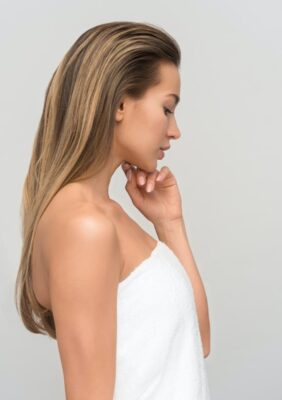 Benefits Of Ginseng For Your Hair
Benefits Of Ginseng For Your HairAlthough the fleshy root has recently grown in popularity, it has been used in traditional Chinese medicines for centuries.
The English word ‘ginseng’ is derived from the Chinese word rénshēn, which translates to ‘plant root.’
The Chinese translation refers to the forked root of the ginseng plant, which resembles a person’s legs. Besides being an energy stimulant and a herbal tea staple, ginseng is a powerful ingredient for hair care.
Ginseng contains ingredients that can help boost hair care routines.
It offers the following key hair benefits:
- Slows or stalls hair loss can not reverse existing hair loss or cure baldness.
- Helps remove dandruff - May partially or completely reverse dandruff.
- Restores nourishment from within - It helps add much-needed hydration.
There’s nothing better than natural ingredients for a nourishing hair routine. Not only is it a sign of purity, but it also evolves your regimen more wholesomely.
That’s exactly how many feel when ginseng was discovered.
May Stall Or Slow Hair Loss
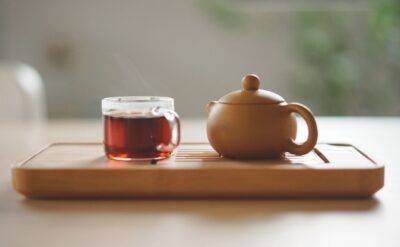 Image by Manki Kim - Unsplash
Image by Manki Kim - UnsplashIt's believed to increase the dermal cells on the scalp, which strengthens the hair follicles and roots. This not only encourages the new growth of strands but also helps to slow hair thinning and breakage.
Ginseng also helps reduce stress, which may help prevent, decrease, or delay hair loss.
Some research shows that it helped to promote hair re-growth in a way that's similar to minoxidil, America's leading hair-growth drug. It can not cure baldness or reverse permanent hair loss.
Ginseng also helps reduce stress, which may help prevent, decrease, or delay hair loss.
Great For Dandruff
Ginseng might be your answer if those unsightly white flakes get you down. The root is high in Saponin, an anti-bacterial compound, which will sweep away dandruff from the scalp and prevent it from reoccurring.
This ensures that your follicles stay clean and flake-free. A recent groundbreaking study in The Journal of Medicinal Food found that red ginseng extract may increase hair activity.
Restores Nourishment From Within
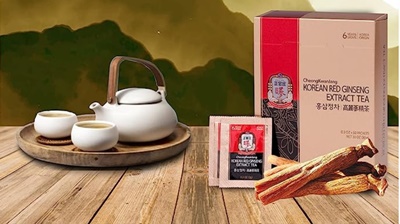 Benefits Of Ginseng For Your Hair
Benefits Of Ginseng For Your HairThanks to its nourishing capabilities, ginseng is a herbal plant that helps the hair's roots and lengths.
How To Use It
As a supplement, the standard daily dose of red ginseng (in liquid, powder, or capsule form) is 400 mg to 800 mg. You can also use the root to make tea (such as Korean Red Ginseng Tea). Or a facial mask.
Empty a capsule such as Prince of Peace Korean Red Ginseng. Mix with 1 tablespoon of raw honey and 1 tablespoon of olive oil. Apply to skin. Relax for 20 minutes, then rinse.
If you prefer, you can experiment with making the mixture but apply directly to the roots of your head instead of your skin. There is no guarantees of results, but it may help strengthen the roots.
Side Effects?
 Benefits Of Ginseng For Your Hair
Benefits Of Ginseng For Your HairWhile most people will only see positives from red ginseng, check with your doctor before starting the supplement, which can interact with MAOI, blood pressure, heart, and blood clotting medications. And stick to the recommended dose.
Short-term oral use (up to 6 months) of Asian ginseng in recommended amounts appears safe for most people.
Questions have been raised about its long-term safety. Some experts advise against using ginseng for infants and children. It also shouldn't by pregnant women or breastfeeding.
Is Asian Ginseng Safe?
When used short-term as part of a specific multi-ingredient topical hair application, Asian ginseng is likely safe. Safety after prolonged repetitive topical use has not been determined.
Overdoing it can cause side effects. This might include irritability, diarrhea, dizziness, and dry mouth. Some evidence suggests that Asian ginseng might affect blood sugar.
If you have diabetes, consult your healthcare provider before using Asian ginseng.
Products That Use Ginseng
The simplest way to make the best of this coveted ingredient is by finding a hair care line that includes shampoo and conditioners infused with ginseng. Look for other hair and skin care products infused with ginseng. 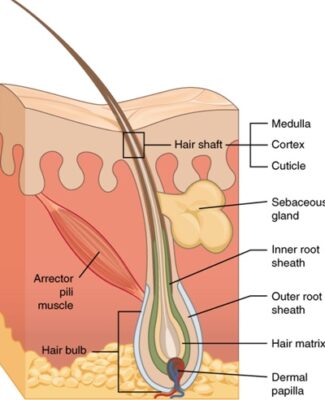
Find a range that combines the magic of ginseng with other great hair-healthy ingredients.
Hair Cycle Phases
The use of plant products in therapy has long been practiced. It has appeared to be generally safe.
Ginseng is a multipurpose natural medicine with a long history of medical application worldwide. This is particularly true in Eastern countries.The medical use of ginseng is not only restricted to improving general wellness. Its use is also extended to treat organ-specific pathological conditions.
Ginseng and ginsenosides have been shown to regulate the expression and activity of major proteins involved in hair-cycling phases.
Summary
The promotion of hair growth and prevention of hair loss by ginseng and its metabolites are associated with the induction of anagen and the delaying of catagen phases.
Although the underlying mechanisms by which ginseng and its metabolites regulate hair cycling have been explored to a limited extent, further studies, especially focusing on extended human trials, are required to establish this natural remedy for hair loss.
It would be a plausible approach to consider developing hair growth-stimulating formulations. Either as FDA-approved therapeutics or as cosmeceuticalsSocial Media Network Information
Please follow us on Twitter at: https://Twitter.com/HairBoutique. I look forward to meeting new people from all walks of Twitter and learning from their Tweets.


